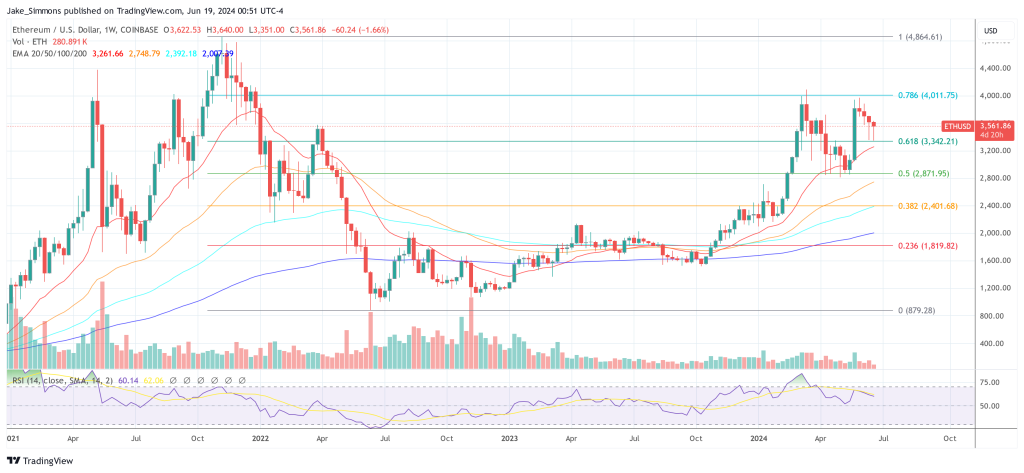The crypto industry received a significant jolt of clarity and optimism as the US Securities and Exchange Commission (SEC) concluded its investigation into Ethereum 2.0, announcing that it will not pursue any enforcement actions. This decision marks an important victory for Ethereum and could serve as a critical reference point for the treatment of digital assets under US securities law.
Ethereum Is Not A Security
In 2018, the SEC made a key distinction that Ether was not a security. However, by 2023, amidst evolving functionalities and the transition to Ethereum 2.0, the SEC revisited this stance, hinting at possible regulatory oversight. This shift led to increased scrutiny and uncertainty within the Ethereum community, culminating in a lawsuit filed by Consensys on April 25, 2024. The lawsuit aimed to confirm the classification of ETH as a commodity, arguing that the SEC lacked jurisdiction over its trade and governance.
In a pivotal response dated June 7, 2024, Consensys urged the SEC to acknowledge the approvals of Ethereum-based ETFs made earlier that May, which were predicated on the assumption that ETH is a commodity. Consensys argued this should conclusively end the SEC’s investigation into Ethereum 2.0.
The SEC’s Enforcement Division officially responded on June 18, 2024, as communicated in a letter addressed to Kevin S. Schwartz, attorney for Consensys. The letter stated, “We write to provide notice that we have concluded the investigation in the above-referenced matter […] based on the information we have as of this date, we do not intend to recommend an enforcement action by the Commission.”
Importantly, the SEC underscored that this closure should not be seen as an exoneration or that no action may ultimately result from the staff’s investigation. Nonetheless, Laura Brookover, a lawyer at Consensys, underscored the significance of this development, stating, “The SEC sent us a closing letter in the Ethereum 2.0 investigation today. Things have changed remarkably fast since we filed our lawsuit against the SEC in late April, culminating in today’s development.”
This resolution can be perceived as a critical moment for the broader crypto industry, particularly in how digital assets are classified and regulated. Alexander Grieve from Paradigm noted the tone of the SEC’s notification, commenting, “They’re pretty hedge-y/evasive in their notification—BUT it is relatively unusual for the SEC to specifically highlight to a company that they’ve closed an investigation.”
The closure of this investigation without enforcement action could set a precedent for how other cryptocurrencies are treated by regulatory agencies, potentially easing the regulatory environment for digital assets.
While the immediate threat of an enforcement action has been alleviated, Consensys and the wider crypto industry are looking towards further clarifications in regulatory policy. Consensys in their lawsuit also seeks a federal court ruling regarding their operations, asserting that they do not act as brokers nor issue securities through their software offerings like MetaMask Swaps and Staking.
As stated in their lawsuit, “Consensys is built on creating software products that allow people around the world to use and build on top of the Ethereum network, and it is entitled to run its business without the cost, burden, and uncertainty of an unlawful enforcement action.”
At press time, the price of Ether (ETH) has responded favorably to the SEC’s decision, showing a notable increase of 3.3%, bringing it to a current trading price of $3,561.


